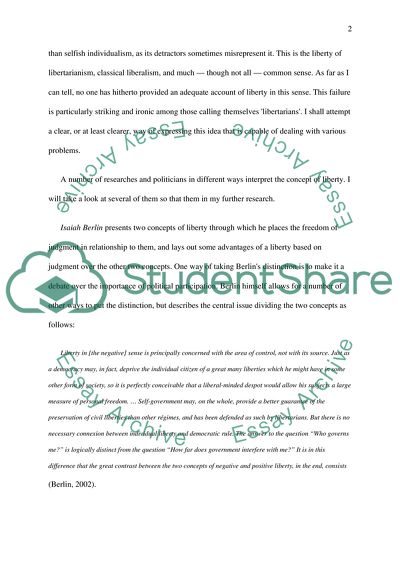Cite this document
(The Concept of Liberty Term Paper Example | Topics and Well Written Essays - 3714 words, n.d.)
The Concept of Liberty Term Paper Example | Topics and Well Written Essays - 3714 words. Retrieved from https://studentshare.org/philosophy/1702920-there-are-various-traditions-that-interpret-the-meaning-of-liberty-in-different-ways-but-there-is-only-one-concept-of-liberty-discuss
The Concept of Liberty Term Paper Example | Topics and Well Written Essays - 3714 words. Retrieved from https://studentshare.org/philosophy/1702920-there-are-various-traditions-that-interpret-the-meaning-of-liberty-in-different-ways-but-there-is-only-one-concept-of-liberty-discuss
(The Concept of Liberty Term Paper Example | Topics and Well Written Essays - 3714 Words)
The Concept of Liberty Term Paper Example | Topics and Well Written Essays - 3714 Words. https://studentshare.org/philosophy/1702920-there-are-various-traditions-that-interpret-the-meaning-of-liberty-in-different-ways-but-there-is-only-one-concept-of-liberty-discuss.
The Concept of Liberty Term Paper Example | Topics and Well Written Essays - 3714 Words. https://studentshare.org/philosophy/1702920-there-are-various-traditions-that-interpret-the-meaning-of-liberty-in-different-ways-but-there-is-only-one-concept-of-liberty-discuss.
“The Concept of Liberty Term Paper Example | Topics and Well Written Essays - 3714 Words”. https://studentshare.org/philosophy/1702920-there-are-various-traditions-that-interpret-the-meaning-of-liberty-in-different-ways-but-there-is-only-one-concept-of-liberty-discuss.


